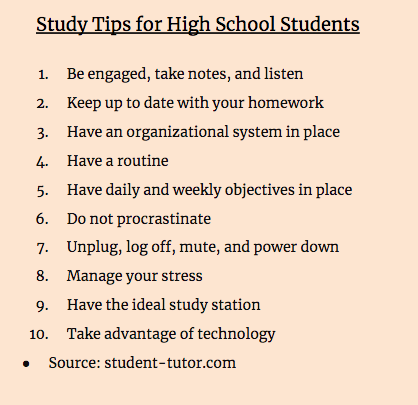AIM Uncovered
Exploring the latest insights and trends in technology and innovation.
Study Like a Pro: Secrets They Won't Teach You in Class
Unlock next-level study techniques that top students won't share! Discover secrets to mastering your subjects and boosting your grades now!
5 Unconventional Study Techniques to Boost Your Retention
When it comes to effective studying, conventional methods often overshadow some unconventional study techniques that can significantly boost your retention. One such method is the Feynman Technique, which encourages students to teach what they've learned to someone else. This process forces you to break down complex topics into simpler terms, ensuring a deeper understanding and better retention of information. Other unique methods include using visual mapping to create colorful diagrams or infographics, which help in visualizing connections between concepts.
Another great approach is to integrate active recall into your study sessions. Instead of passively reading or highlighting texts, test yourself frequently by using flashcards or self-quizzing apps. Research shows that active participation enhances memory retention, making it a key element of effective studying. Additionally, consider employing the Pomodoro Technique, which involves studying in short, focused intervals followed by short breaks. This method not only helps maintain concentration but also prevents burnout, maximizing your overall learning efficiency.

The Science Behind Effective Study Habits: What You Need to Know
The science behind effective study habits reveals that understanding how we learn can significantly impact our academic success. Research suggests that techniques such as spaced repetition and active learning are essential for long-term retention of information. According to a study published by ScienceDirect, students who spaced their study sessions over time performed better on tests than those who crammed. This is because spacing allows the brain to transition information from short-term to long-term memory through reconsolidation, a process that strengthens the neural pathways associated with the studied material.
In addition to spacing, incorporating varied practice can enhance learning outcomes. Engaging with material through different contexts and formats not only bolsters understanding but also prepares students for real-world application. A report from Psychological Science points out that varied practice can lead to improved problem-solving skills. Therefore, to cultivate effective study habits, it is crucial to implement a combination of spaced repetition, active learning, and varied practice to harness the full potential of your cognitive abilities.
Are You Making These Common Study Mistakes?
Many students unknowingly undermine their success by falling into common study mistakes. One such mistake is procrastination, which can lead to unnecessary stress and poor performance. According to HuffPost, procrastination not only affects your grades but also impacts your mental health. To combat this, create a structured study schedule that breaks your tasks into manageable chunks, helping you maintain focus and avoid last-minute cramming.
Another prevalent error is the lack of active learning. Instead of passively reading materials, students should engage more deeply with the content by summarizing, questioning, and teaching what they've learned. Experts from Edutopia highlight the benefits of techniques such as self-quizzing and group discussions. Additionally, incorporating variety into your study methods can significantly enhance retention and understanding, making your study sessions not just productive but also enjoyable.